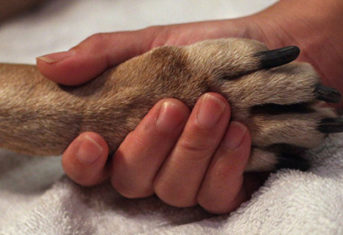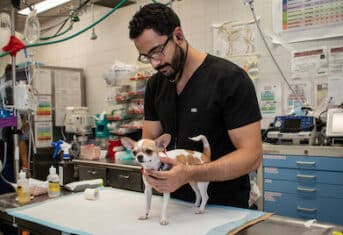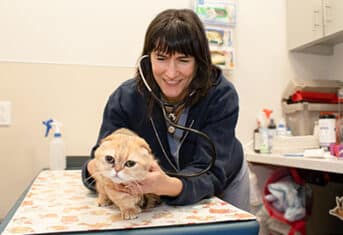Lilies and Your Cat

Lilies and Your Cat
The genesis of this week’s blog did not come from one my patients at The Animal Medical Center, but from a trip to my local Food Emporium. As I walked in through the produce section, the smell of lilies wafted towards me. They were beautiful…and deadly, at least to cats.
The entire lily family, including Easter lilies, Asian lilies, the elegant calla lily and even the feline named tiger lily should be off limits for cat owning households. The toxic substance in lilies is unknown but the toxin appears to affect only the cat and not the dog. In addition to finding a freshly mangled plant on the windowsill, cat owners will see vomiting and diarrhea following lily ingestion. Blood tests often reveal kidney failure which in some cases can require treatment with dialysis and may be fatal.
Lily ingestion is a year round problem because some cats cannot resist sampling the vegetation used to decorate the house — and the problem is not just with lilies. Many other ornamental plants can be toxic to cats. Common springtime flowers on this list include amaryllis, crocus, narcissus, daffodil and azalea. Cat owners must carefully select their houseplants to avoid a trip to the emergency room following unplanned consumption of a toxic cat salad.
If your cat inadvertently ingests one of these plants or any other plant for that matter, contact your veterinarian’s office to determine if treatment is necessary. You may also contact one of the animal poison control services included in the links below. These services are open 24 hours a day to advise pet owners and veterinarians on optimal management for pet poisonings.
________________________________________________________
This may also be found in the “Tales from the Pet Clinic” blog on WebMD.com.
For over a century, The Animal Medical Center has been a national leader in animal health care, known for its expertise, innovation and success in providing routine, specialty and emergency medical care for companion animals. Thanks in part to the enduring generosity of donors, The AMC is also known for its outstanding teaching, research and compassionate community funds. Please help us to continue these efforts. Send your contribution to: The Animal Medical Center, 510 East 62nd Street, New York, NY 10065. For more information, visit amcny.gbtesting.us. To make an appointment, please call 212.838.7053.
































